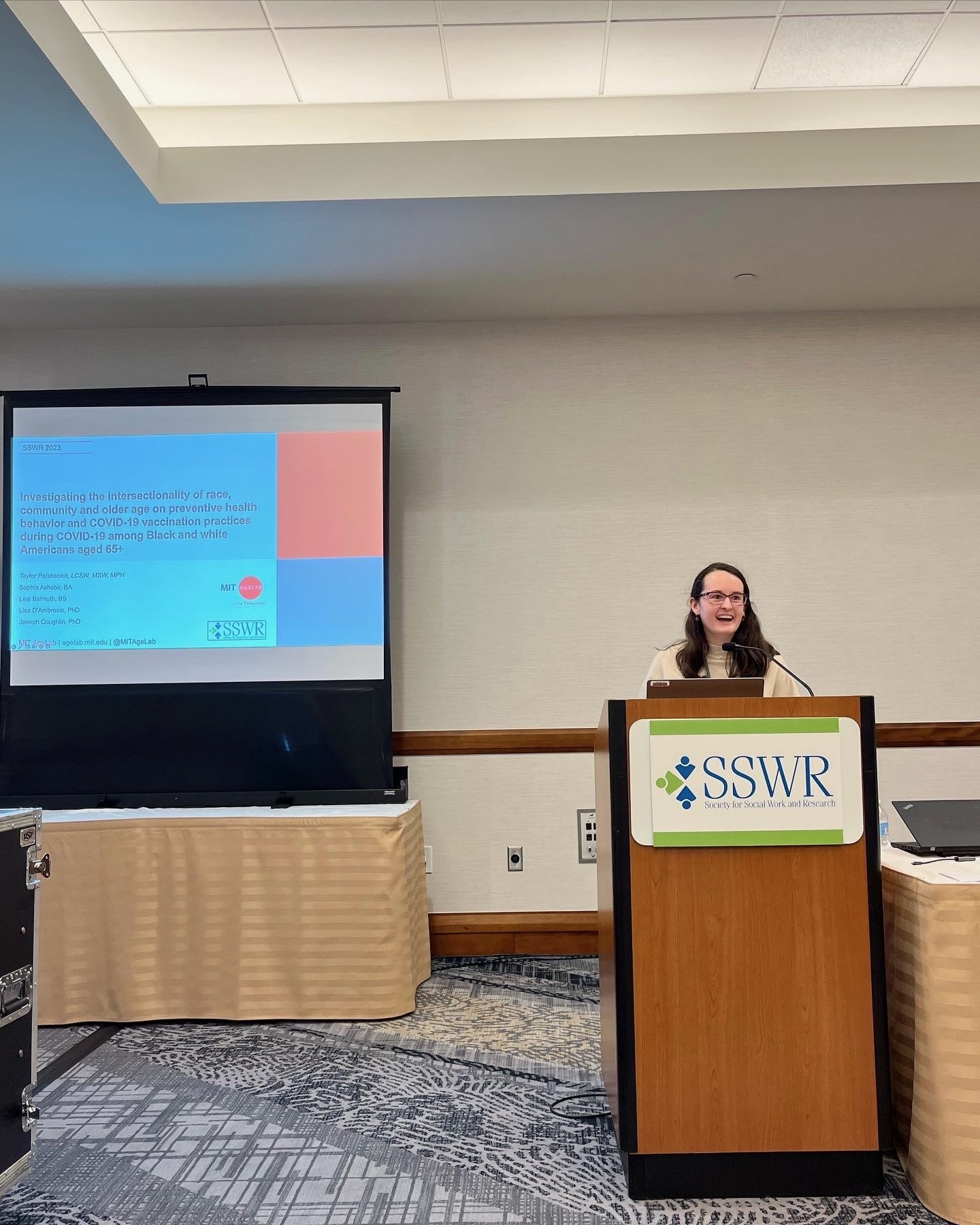Taylor Patskanick Presents on Vaccine Research at Society for Social Work and Research Conference
by Adam Felts
Vaccination is a central public health tool, and is especially important for protecting older adults from dangerous infectious diseases like the flu and COVID-19. Yet for a number of reasons, Americans across backgrounds have expressed hesitance toward vaccination or an outright refusal to be vaccinated. For older adults in particular, understanding the reasons and attitudes that contribute to vaccine hesitancy may contribute to the development of more effective intervention efforts by public health experts.
As part of the 2023 Society for Social Work and Research Conference in Phoenix, Arizona, Taylor Patskanick presented on AgeLab focus group research that examined older adults’ vaccination beliefs and behaviors, with a particular focus on experiences and attitudes related to racial identity. The study queried adults ages 65 and older who are living in the Southeastern United States, the region of the U.S. with the lowest current rates of COVID-19 vaccination, and who are Black and white-identifying.
The study leveraged a public health critical race praxis lens and community-based participatory research methods. The focus groups were organized in terms of COVID-19 vaccination status, age, racial identity and whether participants possessed shared community ties.
Unvaccinated participants tended more often to suggest placing a high value the wisdom of “knowing their body,” perhaps even over the training of their healthcare providers. This group more frequently noted they greatly value the opportunity to “do their own research.”
Regardless of their vaccination status, participants noted the difficulty of navigating the modern media environment and locating trustworthy sources for information about their health, in contrast to “the era of Walter Cronkite” when the media environment featured a much smaller number of trusted voices.
Participants who identified as Black or African-American made minimal references to historical examples of race-based medical discrimination as informing their COVID-19 vaccination anxieties, suggesting that a historical lens alone is not enough to explain present-day discrepancies in COVID-19 vaccination among Black and white older adults. Generational experiences, community embeddedness and technology-savviness also emerged from the study as potentially as influential as other social identity characteristics in affecting the COVID-19 vaccination decision.

